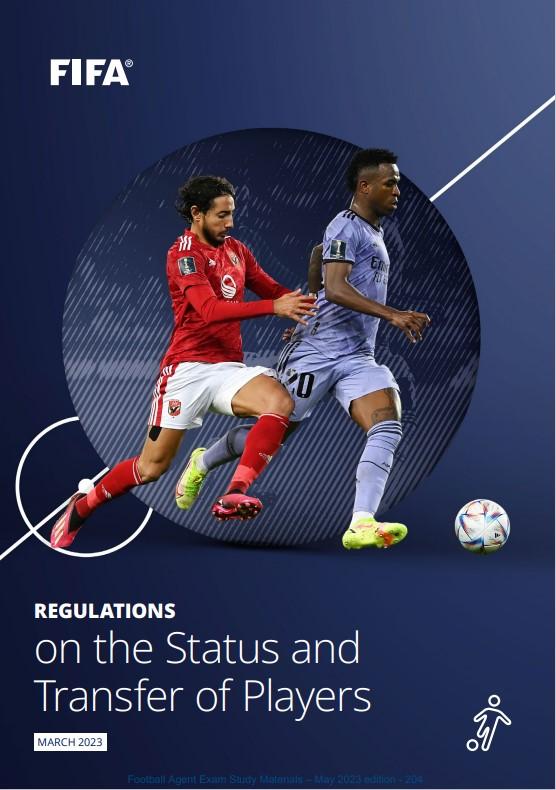In the world of sports,few events capture the global inventiveness quite like the FIFA World Cup. Every four years, nations come together to compete for one of the most coveted trophies in athletic history, stirring passions and national pride in millions of fans. Yet, with the thrill of competition comes a stark need for stringent oversight to maintain the integrity of the tournament. FIFA, the governing body of international soccer, has implemented a series of regulations designed to ensure fair play, prevent corruption, and uphold the spirit of the game. As the countdown to the next World Cup begins, this article delves into the mechanisms that FIFA employs to safeguard the tournament’s integrity, exploring their impact on the game and the ongoing challenges in policing one of the world’s largest sporting events.
Table of Contents
- Examining FIFAs Regulatory Framework for World Cup Integrity
- The Role of transparency in Preventing Corruption and Match Fixing
- Enhancing Player Welfare Through Strict Compliance Measures
- Future Recommendations for Strengthening FIFAs Governance Policies
- Concluding Remarks
Examining FIFAs Regulatory Framework for World Cup integrity
FIFA has implemented a complete regulatory framework designed to uphold the integrity of the World Cup, reflecting a commitment to fair play and transparency. Central to these regulations are policies that address match-fixing, corruption, and doping, each accompanied by strict sanctions for violations. The organization distinguishes itself through proactive measures, including:
- Robust monitoring systems to detect and prevent irregular betting patterns.
- Collaboration with international law enforcement agencies to investigate potential corruption.
- mandatory education programs for players and officials on ethical conduct and accountability.
In addition to these protective measures,FIFA’s regulatory framework includes a dedicated oversight body that reviews compliance and handles complaints related to integrity issues. The incorporation of technology plays a pivotal role,particularly with the introduction of Video Assistant Referee (VAR) systems and data analytics. These innovations not only enhance the decision-making process on the field but also serve as deterrents against misconduct. The effectiveness of these regulations is monitored through:
| Regulation Aspect | Status |
|---|---|
| Integrity Education Programs | Ongoing |
| Corruption Investigations | Active |
| Match Monitoring | Real-time |
| Player Support services | Available |
The Role of Transparency in Preventing Corruption and Match Fixing
Transparency serves as a critical pillar in the fight against corruption and match-fixing in sports, particularly in high-stakes events like the World Cup. By ensuring that data regarding financial transactions,player transfers,and betting activities is accessible and scrutinizable,authorities can create an environment where unethical practices are difficult to conceal. The implementation of rigorous reporting standards and public disclosure obligations fosters accountability among players, officials, and governing bodies alike. This proactive approach helps to build trust among fans and stakeholders, as it signals a commitment to ethical standards and a fair competition landscape.
To bolster these efforts, FIFA has established a framework that emphasizes the importance of whistleblowing mechanisms and self-reliant audits. These initiatives are designed to encourage individuals to report suspicious activities without fear of retaliation.Key elements include:
- Mandatory Reporting: Requirements for officials and players to report any irregularities.
- Regular audits: Scheduled financial audits conducted by independent firms to assess compliance.
- Public Access to Reports: Making audit findings and compliance reports available to the public.
Furthermore, a well-structured transparency framework can considerably deter potential wrongdoers from engaging in corrupt practices, knowing that their actions are under constant scrutiny. The enhanced focus on ethical behavior not only protects the integrity of the tournament but also elevates the overall reputation of football on the global stage.
Enhancing Player Welfare Through Strict Compliance Measures
In the world of competitive sports, the wellbeing of players has emerged as a critical focus, necessitating stringent compliance measures to ensure their health and safety. FIFA’s commitment to player welfare encompasses a range of protocols designed to mitigate risks associated with physical strain, mental health challenges, and potential injury. by adhering to strict medical assessments,two key initiatives are implemented:
- Regular Health Screenings: Mandatory evaluations before and during tournaments help in identifying any underlying medical issues.
- Psychological Support Structures: Access to mental health professionals ensures that players can manage the pressures of high-stakes competition.
Moreover,ongoing educational programs aim to foster an environment of transparency and support,empowering players to take charge of their health. These initiatives are supplemented by clear regulations governing player conduct, aimed at reducing issues related to substance abuse and ensuring fair play. To illustrate the various compliance measures in place, the following table outlines key regulations and their impact on player safety:
| Compliance Measure | Objective | Impact |
|---|---|---|
| Injury Protocols | Immediate assessment and treatment | Reduced long-term injuries |
| Substance Abuse Policy | Deterrence of doping | Enhanced integrity of competition |
| Mental Wellness Programs | Support for psychological health | Improved player performance |
Future Recommendations for Strengthening FIFAs Governance Policies
To enhance the integrity of FIFA’s governance policies moving forward, several strategic actions must be considered. Firstly, it is indeed essential to establish a robust whistleblower protection program that encourages individuals to report unethical behavior without fear of retaliation. This would create a culture of transparency and accountability within the organization. Additionally, FIFA should implement a comprehensive audit and compliance system, periodically reviewing its operations and financial dealings to prevent corruption and mismanagement. Such initiatives would not only fortify public trust but also ensure a level playing field where all stakeholders are held to consistent ethical standards.
Furthermore, embracing technology could significantly bolster FIFA’s governance framework. By investing in advanced data analytics and blockchain technology, FIFA can improve its monitoring of financial transactions and player transfers, minimizing the risk of fraud and illicit activity. Another critically important recommendation is the formation of an independent oversight committee comprised of diverse stakeholders, including former players, fans, and governance experts. this committee would serve to guide FIFA’s decision-making, ensuring it aligns with global best practices and reflects the interests of the football community at large. The following table summarizes these recommended initiatives:
| Recommendation | Objective |
|---|---|
| Whistleblower Protection Program | Encourage reporting of unethical behavior |
| Audit and Compliance System | Ensure financial transparency |
| Investment in Technology | Enhance monitoring capabilities |
| Independent Oversight Committee | Guide governance decision-making |
Concluding Remarks
FIFA’s stringent regulations serve as a vital framework aimed at upholding the integrity of the World Cup, ensuring that the tournament remains a symbol of fair play and sportsmanship. From rigorous player eligibility assessments to meticulous oversight against corruption and match-fixing, these measures reflect the organization’s commitment to fostering a competitive environment grounded in ethical standards. As the world turns its eyes to the stunning game, the continued enforcement and evolution of these regulations will be crucial in preserving the spirit of the World Cup. Moving forward, both fans and stakeholders must remain vigilant and proactive, ensuring that the legacy of this prestigious tournament remains unblemished for generations to come.





